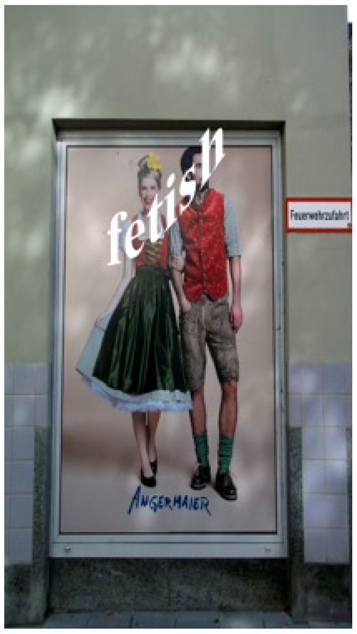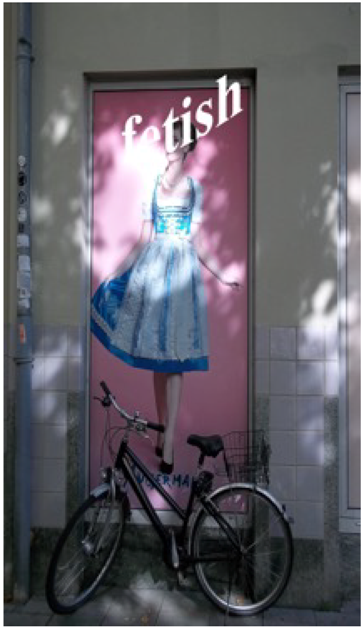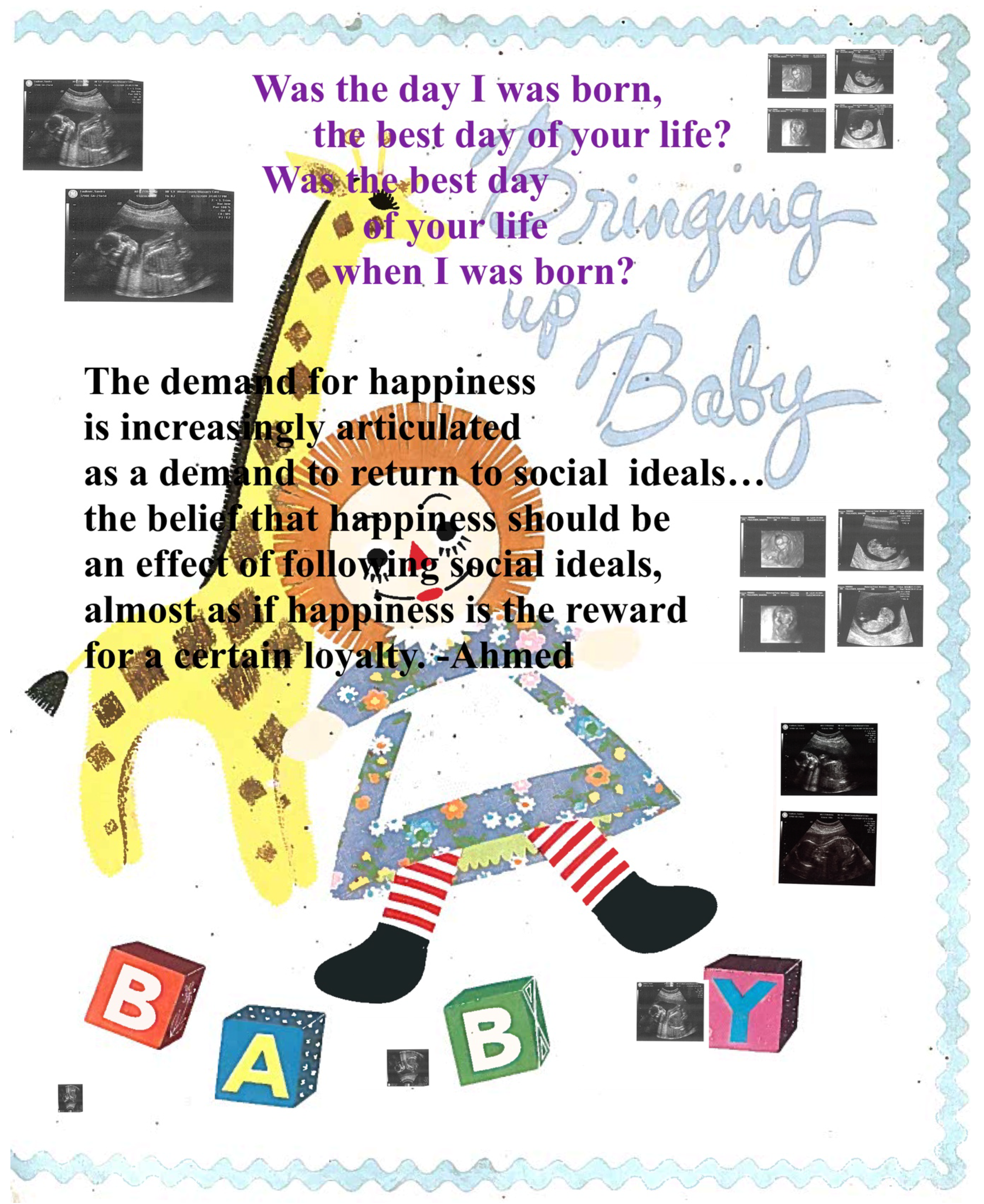Crank up the Feminism: Poetic Inquiry as Feminist Methodology
Abstract
:Crank up the Feminism
We declare feminist lawlike shrews in heatdial up the belligerent bassfrom the front seat.
We do our hair in rosy ragesmear righteous red on our cheeksas we pull on our combat best dressthe anti-patriarchy patrol in suffragette white.
The usual boys have no ideawhat to do as we shankthe good girl in the mirror:You’re all lesbians now, America!
Our art bleeds down our legspools like rubies on piles of rubblethat can’t be swept under rugs:our rage refuses to ride shotgun.
We skip the protest and goright for the throat, steal bolognasandwiches from the Boy Scout’stent yawping, You want to see rogue?
We snap the elastic in your pants,show up five minutes latewith wet hair and chipped nails,hit send without proofreading:
you can type your own templateas we crush the control panelthrottle up the appropriate volumesmashing the baby over your knees.
1. Poetic Inquiry as Feminist Methodology
I write poetry because I am a bad (BAD!) social scientist (Faulkner 2009). I study personal relationships; I am most interested in what relationships feel like and sound like and smell like more than how they function as some kind of analytic variable to be deconstructed. I believe in poetic truth(s) more than social science Truth punctuated with a capital T … What I understand is that one can write poetry as social science. What I believe in is the value of poetry as relationship research.
Poetry can help us see our relationships bleeding out, hemorrhaging from the invisible inside, spilling outside the neat axioms of theory. Poetry is theory. Poetry can have us experience the social structures and ruptures in situ as we read, as we listen, as we hold our breath waiting for the next line. Poetry is bandage and salve. Poetry lets me goodwill my secure cloak of citations, argue in verse that there is space for critical work and personal experience in the study of close relationships.
I’m Not What Lisa Expectedno blonde bunned hairlike the researcher in her mind,like my second grade teacher, glasses,but blue and stylish and young.I’m 31 and old enough to teach,ask others about their identities,though I have scant lines on face and vita,wear shirts without collars.I talk as a friend—except those questionsabout being gay and Jewish—as I shift, catch words with my recorder,camo cargo pants belie my worry with uniform.Another participant claims I walk lesbian-like, confident stride and spiky cut hair,into her usual diner on 7th Avenue wherewe eat rice pudding like family. She knewwho I was without my description—5 feet 5 inches, red hair, short and sapphire spectacles—How do I tell them that I live and flirtand fight with a man now, that myex-girlfriend calls me semi-straightand semi-gay and too interested in labels?
Letter to the IRB from South JerseyDear Institutional Review Board:I know it has been a year, but I am still in the field.The renewal form for study 11147 (Gay Jewish Identity)is mostly complete. As usual, you provide too littlespace, no more than 2 costly lines, so I append this letter.Just in case. I considered your focused questions as I drove north,away from the tattooed gentiles in Cape May, the Jersey turnpikeand the unctuous winter storm coating my Volkswagen.I was nervous, had too tight a grip on the wheel. Unanticipatedconsequences of this research? I could skid under a trailer,the cybergreen Beetle with the German engineering I have admiredsince I was 15, the “cool car, but one I shouldn’t own,” screechingpart in pieces along with the German chocolate cake from the cookingschool bakery in my stomach. My interviewee in Atlantic Citybought it for us. He said on Saturdays the students sell goodies,cheap. If you go early. We drink his good coffee—not that dirtywater from Jersey diners—in mustard luster ware cupsfrom Czechoslovakia (I checked the bottom). As I listento their stories, I drink too much crappy coffee,eat raisin toast with margarine, bagels and jelly, fruit plateswith cottage cheese, listen to piped-in light favorites attheir local diners. I rent space with food. Sometimes afterwards,we talk like friends. You know, we exchange book titles,share artwork and our secrets about relationships. I meet everyMonday with Lesa, once participant, now friend, to eat bagels.Positive consequence, would you agree? Did I mentionthe car I drive to meet participants? Is this an unanticipatednegative consequence? What about the consent form?I know we have to cover our asses, but the signature linecreeps me out, them signing their names on an official pagelike a hit list. I want to ask you these questions, even if they smackof academic drama. What they really want to know about meis not there, on your consent form. I have rewritten it:Bisexual of German/English/Scottish Ancestry who grewup in Atlanta with Yankee parents seeks LGBT Jewsfor conversation. Has experience with Jews.They like to hear my stories of exes, mentors, all of the Jewsin my life, why I’m interested in their lifework. I guessthe personal connection. Sometimes, what really matters is this.
2. Feminist Poetry and Embodiment
Poetry in research is a way to tap into universality and radical subjectivity; the poet uses personal experience and research to create something from the particular, which becomes universal when the audience relates to, embodies, and/or experiences the work as if it were their own.
3. Identity Work
Poetry, in particular, makes me a better social scientist. When you read poetry, my poetry, I want you to do more than think about your own life; I want you to critique how social structures scaffold your experiences of relating.
We found the process of using academic research as an analysis tool an illumination of our relationship and the culture and context in which it existed; using our expertise and skill as poets and scholars demonstrates that poetic and scientific understandings of relationships can coexist. Academic discourse and romantic discourse can dialogue and potentially alter unproductive and harmful dominant discourse about romance.
>>Bacon reminds me of the side of men I can’t swallow.my truck of love cameat you hard and fastit crushed your intellectual Volkswagen beetle.You didn’t have your seatbelton tight enoughnow you are fuckedi feel that way everydayi got a big cranial woody for youI want to unfold youyou feel bad i feel goodlike that. not tellingi had a bucketful for you inside(p. 214)
| the way that i feel about you |
| overshadows academic concepts like they don’t even exist |
| my feelings towards you |
| transcend the conscious/intellectual world |
| my feelings are not |
| for grading or evaluation against technical, political or academic yardsticks |
| i understand the issue is how YOU feel not how I feel. |
Because poetry defies singular definitions and explanations, it mirrors the slipperiness of identity, the difficulty of capturing the shifting nature of who we are and want to be, and resonates more fully with the way identity is created, maintained, and altered through our interacted narratives.
ReconstructionistShe thinks it’s different now, and asks me howI find the rallies, picnics, police, gaylovers with youth who walk in open now.She found no path, no help with the labels,the parties of conservative newspapersthat print Jewish activist lesbianas if boxes can contain her laborsto make Seders and new year with new kin.Now she tells mom, keeps a job, says enoughand buys a house with oaks and shaded jade,makes a minyan and trims a holly boughwith a Christian woman. The years they’ve made,are like the book club books read togetherfor 12 years when they had nothing better.
Chapbooks represent a part of DIY culture and have been from inception, a medium for political action to a venue for avant-garde and new writers …. Contemporary iterations of chapbooks have been likened to DIY paperbacks and are popular again in the contemporary poetry world because of the production ease, path to other publications, and risk-taking in subject and/or style. They have changed from their past as a vehicle for the democratization of readership to a democratizing means of production for writers.





“Sheila and I keep talking. She tells me how things in the Pittsburgh march fell apart because of White women. There would be another march where White women were not centered, where pussy hats would not be visible.We think about being White women. We think about being White feminists. We ask how we can be White Feminists without White Feminism. Fifty-three percent of Trump’s vote was White women. This is our audience.We ask. We start to listen. We invite other White feminists to listen. Then to act.”
4. Motherhood, Mothering, and Interpersonal Communication
Instructions for Surviving InfantRemember the stubborn latchclown purple mouth of gentian violetyour own face melted offfrom exhaustion, say no thanksto the OB at the 6-week crybecause you must rememberremember not to have anotherdo not get over itdo not cherish thisno taking something to ease your faceall ears that ear plugs can’t stop up.Forget which onesie you puton the 9 week old you have to pick up,panic when you must identify heron the floor in the infant roombecause all the white babies look alikerows of drool encrusted chinsclumsy arms in the nurserydon’t tell them her first sentence:daddee needs more beer.My super power meanseven lactation consultantsare not safe from the arch of spray,pure power, pure stubborn,no bonding hereyou contested and I persistedlike daughter like mothergive away the parent manualsoffer no cloak of citations.When I was 7 weeks oldI went back to teach, to speed upthe insufferable infancy,the mothering work I suck at.Sit your boots in the chairBaby Doo, Ms. Babyfirst word: dog, ball, ockpussother first sentence: More cookie, please.
This focus on the personal acts as an interrogation into the expectations of middle-class motherhood and the concomitant disappointments of never being good enough. I argue that the engagement with the embodied experiences of mothering can alter attitudes and create social change through the visibility of stigmatized identities (e.g., bisexual feminist, ambivalent mother) and the refusal to create false separations between the domestic and public.
Poems are like time machines. They travel through time as a medium for individual memory and, as a genre, they engage historical time, collective cultural memory. But I think poems also activate a simultaneity of past, present, and future. A poem’s rhythm moves us forward in time; the imagination a poem (hopefully) sparks posits futurities, a constellation of potentialities. Considering the nexus of verb tenses versus the present tense of the reading experience, a poem has already happened, is always happening right now, and will soon happen again.(para. 12)
Make TwoWith two needles and a ball of string,we learn the art of multiplication—2 couplets, lovers, dyads, pet rats,not twins like in my preggo horror movie.Two tickets to a concert, a table for 2.Not my favorite number-the rent is past due.II, 2, two ways to write the number, my favoritecurvy because you can liein the bottom, the bowl. The number of bitesyou need to share, a joint account. Two.The usual number of cake layers, the piecesof toast you get with eggs, the # of eggsin the daily special, my good and bad side,dichotomy, either or (not both/and),one part of a compound sentence. Two sidesto the bed, two dimensions, two favorite colors,the number of legs Dad once had,knit in front and back = M1, 2 stitches,what you need to erase a day, not the numberafter birth, 2 parts water, 2 ounces of bourbon.
A queer methodology, in a way, is a scavenger methodology that uses different methods to collect and produce information on subjects who have been deliberately or accidentally excluded from traditional studies of human behavior. The queer methodology attempts to combine methods that are often cast as being at odds with each other, and it refuses the academic compulsion toward disciplinary coherence.(p. 13)
I engage with the meta-theoretical aspects of family talk about sex and sexuality education across seemingly disparate communication theory, models, and research traditions to allow broader understandings about communication and sexuality education than a reliance on one tradition provides: the use of my autoethnographic understandings of sexuality education in the form of dialogue with my daughter demonstrates reflexivity through the use of arts-based research methodology. The use of social science “research questions” to frame and push the poetic analysis shows critical engagement with literature on sexuality. The use of news headlines about sexuality connects personal experience about sexuality education to larger cultural issues.
5. Poetry as Embodiment
Writing is not a disembodied activity. Writing about running proved to be an embodied experience; I worked out structural, content, and theoretical issues as I ran. And my running became a problem to work out in my writing … I can’t pinpoint an exact moment when I recognized that poetic inquiry was the key to organizing and demonstrating this project as a feminist embodied ethnography. Most likely, the pieces were sweat out, sorted, and rearranged during runs. The problems of writing and running were tangled together for me in this project.Writing Problems: How do I make running interesting to non-runners? How do I connect women’s embodied experiences to the idea of running as a feminist act?Running Problems: How do I keep running? How do I keep running despite my maladies?
| Woman, Runner a woman runner is a woman who runs is a woman runner | |
| Run Body thunder with your thighs running is like being born saying yes to cheese | |
| Cat Calls don’t call us a girl don’t call us a girl jogger fierce women running | |
| Body is Mind I am all body aching arthritic hip feet keep run-run-running | |
| PR: Personal Record you become body you become your body you become your body | |
| Women Running safety dressed in form Caution: RUNNERS on the road dogs cat call danger | |
| Feminist Run run as strategy physical mouthed resistance strong-sweat out the shoulds | |
| You are if you run, you are see yourself as a runner athlete woman run. (Faulkner n.d.) | |
In my field notes, I found poems. I wrote many entries in my field notes as poems, and constructed many poems while running. When I think about what makes poetry, I typically think of the line. “Poetry is the sound of language in lines … Line is what distinguishes our experience of poetry as poetry, rather than some other kind of writing” (Longenbach 2008, p. xi). And when thinking of the line, I think of breath. For me, running is also about breath; breathing in the pleasure, breathing out the hurt. Breathing in who I want to be, breathing out lesser versions of self. Trying to breathe in through the nose and out through the mouth to catch my pace during a run. “The body is rooted in breath, rhythm, and poetry …”
The sounds of running—the noise, the grunts, the breathing, the encouragement, the disappointment—jog you through training runs, races, and the in situ embodiment of a sport real women enjoy and loathe.I hope you pace with us through the words, images, and sounds of women jogging, crying, raging, laughing, sprinting, and walking through their running lives.
6. Sexual Harassment in the Academy
To bring feminist theory home is to make feminism work in the places we live, the places we work. When we think of feminist theory as homework, the university too becomes something we work on as well as at. We use our particulars to challenge the universal.
| Dissertation Abstracts International |
| Feminist Standpoint Theory: An Examination by a Post Modern Two-Dimensional Cat with No Mouth and 22,000 Products Bearing Her Image |
After the Faculty MeetingHK still believed in the academythough meetings like street brawlsleft feminist cat scholar bodies piledin naked postmodern heaps beside her chair.She believed even when she took her standpointto the harassment advocate who chuckled,told her to consider being spayedbecause it would help her emotionality-even through stories of tenured professorshaving to rape in the middle of the quadin bright daylight with a metal weaponand maybe a drunken student partybefore the possibility of firing would risepast a personnel meeting to the provost.After all, many skillful eligible bachelorsamong their faculty deserved a date.Jodie, the canine hire, howledthrough departmental dog jokesof chewed-up essays and sexy mailmen:Why are dogs so obedient?Because they sport choke collars.Jodie started chanting in the copy room,
Funding
Conflicts of Interest
References
- Ahmed, Sara. 2017. Living a Feminist Life. Durham: Duke University. [Google Scholar]
- Anzaldúa, Gloria. 2013. The new mestiza nation: A multicultural movement. In Feminist Theory Reader, Local and Global Perspectives. Edited by Carole R. McCann and Seung-Kyung Kim. New York: Routledge, pp. 277–84. First published 1992. [Google Scholar]
- Baxter, Leslie. 2011. Voicing Relationships: A Dialogic Perspective. Thousand Oaks: Sage. [Google Scholar]
- Brady, Ivan. 2004. In defense of the sensual: Meaning construction in ethnography and poetics. Qualitative Inquiry 10: 622–44. [Google Scholar] [CrossRef]
- Chang, Jennifer. 2018. “Each time the light changed”: A Micro(inter)view with Jennifer Chang, curated by Lisa Olstein. Tupelo Quarterly. June 14. Available online: http://www.tupeloquarterly.com/each-time-the-light-changed-a-microinterview-with-jennifer-chang-curated-by-lisa-olstein/ (accessed on 14 June 2018).
- Collins, Patricia Hill. 2000. Black Feminist Thought: Knowledge, Consciousness, and the Politics of Empowerment. New York: Routledge. [Google Scholar]
- Davis, Kathy. 1997. Em-bodying theory: Beyond modernist and postmodernist readings of the body. In Embodied Practices: Feminist Perspectives on the Body. Edited by Kathy Davis. London: Sage, pp. 1–23. [Google Scholar]
- Ellingson, Laura. 2017. Embodiment in Qualitative Research. New York: Routledge. [Google Scholar]
- Faulkner, Sandra L. 2005. Method: 6 poems. Qualitative Inquiry 11: 941–49. [Google Scholar] [CrossRef]
- Faulkner, Sandra L. 2006. Reconstruction: LGBTQ and Jewish. International and Intercultural Communication Annual 29: 95–120. [Google Scholar]
- Faulkner, Sandra L. 2009. Poetry as Method: Reporting Research through Verse. New York: Routledge. [Google Scholar]
- Faulkner, Sandra L. 2012a. That Baby will Cost You: An intended ambivalent pregnancy. Qualitative Inquiry 18: 333–40. [Google Scholar] [CrossRef]
- Faulkner, Sandra L. 2012b. Hello Kitty Goes to College: Poems. Chicago: Dancing Girl Press. [Google Scholar]
- Faulkner, Sandra L. 2014a. Family Stories, Poetry, and Women’s Work: Knit Four, Frog One (Poems). Rotterdam: Brill/Sense. [Google Scholar]
- Faulkner, Sandra L. 2014b. Bad Mom(my) Litany: Spanking cultural myths of middle-class motherhood. Cultural Studies Critical Methodologies 14: 138–46. [Google Scholar] [CrossRef]
- Faulkner, Sandra L. 2015. Knit Four, Make One: Poems. Somerville: Kattywompus Press. [Google Scholar]
- Faulkner, Sandra L. 2016a. TEN: (The Promise of Arts-Based, Ethnographic, and Narrative Research in Critical Family Communication Research and Praxis. Journal of Family Communication 16: 9–15. [Google Scholar] [CrossRef]
- Faulkner, Sandra L. 2016b. Postkarten aus Deutschland: A Chapbook of Ethnographic Poetry. Liminalities 12: 1. [Google Scholar]
- Faulkner, Sandra L. 2017a. Poetic Inquiry: Poetry as/in/for Social Research. In The Handbook of Arts-Based Research. Edited by Patricia Leavy. New York: Guilford Press, pp. 208–30. [Google Scholar]
- Faulkner, Sandra L. 2017b. Faulkner writes a middle-aged Ars Poetica. In Poetic Inquiries of Reflection and Renewal. Edited by Lynn Butler-Kisber, John J. Guiney Yallop, Mary Stewart and Sean Wiebe. Nova Scotia: MacIntyre Purcell Publishing Inc., pp. 147–52. [Google Scholar]
- Faulkner, Sandra L. 2017c. Poetry is Politics: A Poetry Manifesto. International Review of Qualitative Research 10: 89–96. [Google Scholar] [CrossRef]
- Faulkner, Sandra L. 2017d. Mother-Poems: Using the Confessional as Critique in Autoethnographic Poetry. In Creative Selves/Creative Cultures: Critical Autoethnography, Performance, and Pedagogy. Edited by Stacy Holman Jones and Marc Pruyn. Basingstoke: Palgrave-MacMillan. [Google Scholar]
- Faulkner, Sandra L. 2017e. MotherWork Collage (A Queer Scrapbook). QED: A Journal in GLBTQ Worldmaking 4: 166–79. [Google Scholar] [CrossRef]
- Faulkner, Sandra L. 2018a. Crank up the Feminism. Rise Up Review! Summer. Available online: www.riseupreview.com (accessed on 15 June 2018).
- Faulkner, Sandra L. 2018b. Queering sexuality education in family and school. In Queering Families, Schooling Publics: Keywords. Edited by Anne M. Harris, Stacy Holman Jones, Sandra L. Faulkner and Eloise D. Brook. New York: Routledge, pp. 25–41. [Google Scholar]
- Faulkner, Sandra L. 2018c. Real Women Run: Running as Feminist Embodiment. New York: Routledge. [Google Scholar]
- Faulkner, Sandra L. n.d. Real Women Run: Running as Feminist Embodiment (Online Material). Available online: http://innovativeethnographies.net/realwomenrun (accessed on 20 June 2018).
- Faulkner, Sandra L., and Michael L. Hecht. 2011. The negotiation of closetable Identities: A Narrative Analysis of LGBTQ Jewish Identity. Journal of Social and Personal Relationships 28: 829–47. [Google Scholar] [CrossRef]
- Faulkner, Sandra L., and Paul D. Ruby. 2015. Feminist identity in romantic relationships: A relational dialectics analysis of email discourse as collaborative found poetry. Women’s Studies in Communication 38: 206–26. [Google Scholar] [CrossRef]
- Faulkner, Sandra L., and Sheila Squillante. 2018. Nasty Women Join the Hive: A Womanifesto Invitation for White Feminists. 1. Vol. 40. Prod. Women & Language Online. Available online: https://www.womenandlanguage.org/40-1 (accessed on 15 June 2018).
- Faulkner, Sandra L., Bernadette M. Calafell, and Diane S. Grimes. 2009. Hello Kitty Goes to College: Poems about Harassment in the Academy. In Poetic Inquiry: Vibrant Voices in the Social Sciences. Edited by Pauline Sameshima, Monica Prendergast and Carleton Derek Leggo. Rotterdam: Brill/Sense, pp. 187–208. [Google Scholar]
- Grasso, Samantha. 2018. Art Student Delivers Perfect Response to Teacher’s Request to ‘Dial Back the Feminism’. The Daily Dot. February 8. Available online: https://www.dailydot.com/irl/dial-down-the-feminism/ (accessed on 8 February 2018).
- Halberstam, Judith. 1998. Female Masculinity. Durham: Duke University. [Google Scholar]
- Hirshfield, Jane. 1997. Nine Gates: Entering the Mind of Poetry. New York: Harper Collins. [Google Scholar]
- Krizek, Robert L. 2003. Ethnography as the excavation of personal narrative. In Expressions of Ethnography: Novel Approaches to Qualitative Methods. Edited by Robin P. Clair. Albnay: SUNY, pp. 141–51. [Google Scholar]
- Longenbach, James. 2008. The Art of the Poetic Line. Minneapolis: Graywolf Press. [Google Scholar]
- Manning, Jimmie. 2014. A constitutive approach to interpersonal communication. Communication Studies 65: 432–40. [Google Scholar] [CrossRef]
- Manning, Jimmie, and Adrianne Kunkel. 2015. Qualitative approaches to dyadic data analyses in family communication research: An invited essay. Journal of Family Communication 15: 185–92. [Google Scholar] [CrossRef]
- McCaughey, Martha. 1997. Real Knockouts: The Physical Feminism of Women’s Self-Defence. New York: New York City Press. [Google Scholar]
- Moraga, Cheris, and Glora Anzaldúa. 1981. This Bridge Called My Back: Writings by Radical Women of Color. Edited by Cheris Moraga and Glora Anzaldúa. New York: Kitchen Table. [Google Scholar]
- Olesen, Virginia. 2005. Early millennial feminist qualitative research. In The Sage Handbook of Qualitative Research. Edited by von Norman K. Denzin and Yvonna S. Lincoln. Thousand Oaks: Sage Publications, pp. 235–78. [Google Scholar]
- Poetry Foundation. 2012. Adrienne Rich: 1929–2012. Poetry Foundation. Available online: https://www.poetryfoundation.org/poets/adrienne-rich (accessed on 20 June 2018).
- Reed, T. V. 2013. The poetic is political: Feminist poetry and the poetics of women’s rights. In Feminist Theory Reader, Local and Global Perspectives. Edited by Carole R. McCann and Seung-Kyung Kim. New York: Routledge, pp. 85–97. First published 2005. [Google Scholar]
- Reilly, Rosemary C., Virginia Lee, Kate Laux, and Andréanne Robitaille. 2018. Using found poetry to illuminate the existential and posttraumatic growth of women with breast cancer engaging in art therapy. Qualitative Research in Psychology 15: 196–217. [Google Scholar] [CrossRef]
- Richardson, Laurel. 1997. Fields of Play: Constructing an Academic Life. New Brunswick: Rutgers. [Google Scholar]
- Snowber, Celeste. 2016. Embodied Inquiry: Writing, Living and Being Through the Body. Rotterdam: Brill/Sense. [Google Scholar]
- Strine, Mary S. 1989. The politics of asking women’s questions: Voice and value in the poetry of Adrienne Rich. Text and Performance Quarterly 9: 24–41. [Google Scholar] [CrossRef]
- Suter, Elizabeth A. 2018. The promise of contrapuntal and intersectional methods for advancing critical interpersonal and family communication. Communication Monographs 85: 123–39. [Google Scholar] [CrossRef]
- Velija, Philippa, Mark Mierzwinski, and Laura Fortune. 2013. “It made me feel powerful”: Women’s gendered embodiment and physical empowerment in the martial arts. Leisure Studies 32: 524–41. [Google Scholar] [CrossRef]
- Young, Dean. 2010. The Art of Recklessness: Poetry as Assertive Force and Contradiction. Minneapolis: Graywolf Press. [Google Scholar]

© 2018 by the author. Licensee MDPI, Basel, Switzerland. This article is an open access article distributed under the terms and conditions of the Creative Commons Attribution (CC BY) license (http://creativecommons.org/licenses/by/4.0/).
Share and Cite
Faulkner, S.L. Crank up the Feminism: Poetic Inquiry as Feminist Methodology. Humanities 2018, 7, 85. https://doi.org/10.3390/h7030085
Faulkner SL. Crank up the Feminism: Poetic Inquiry as Feminist Methodology. Humanities. 2018; 7(3):85. https://doi.org/10.3390/h7030085
Chicago/Turabian StyleFaulkner, Sandra L. 2018. "Crank up the Feminism: Poetic Inquiry as Feminist Methodology" Humanities 7, no. 3: 85. https://doi.org/10.3390/h7030085
APA StyleFaulkner, S. L. (2018). Crank up the Feminism: Poetic Inquiry as Feminist Methodology. Humanities, 7(3), 85. https://doi.org/10.3390/h7030085




